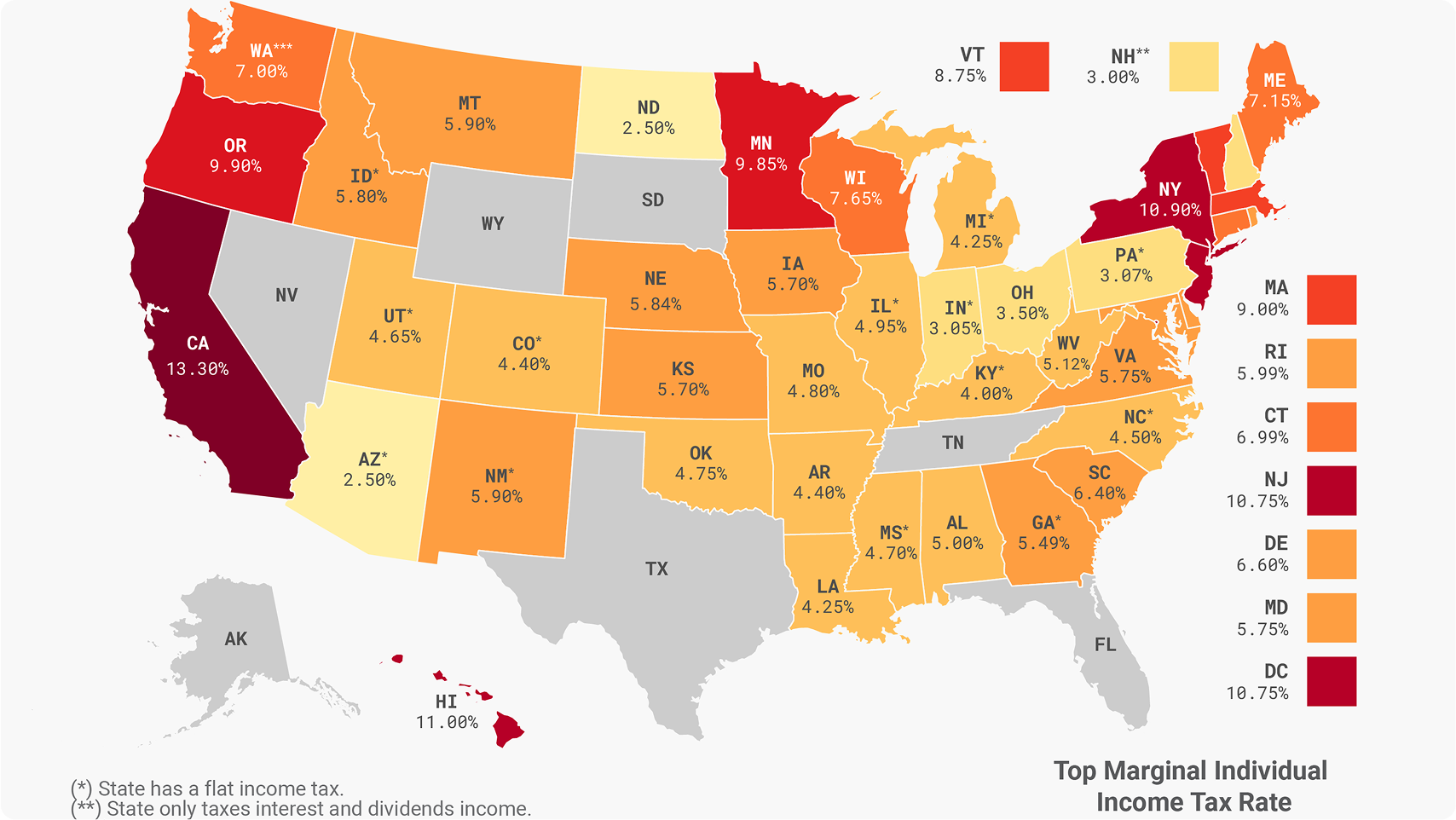With Tax Day approaching on April 15, 2025, Americans are reminded of the substantial amount they pay in taxes over their lifetime. A recent study by Self Financial found that the average American pays $524,625 in taxes over their lifetime. However, in some states, this number is significantly higher.
The Highest and Lowest Lifetime Tax Burdens
- New Jersey tops the list with an estimated $987,117 in lifetime taxes per resident, the highest in the nation.
- Washington, D.C. follows closely, with residents paying $884,820 over their lifetimes.
- West Virginia has the lowest lifetime tax burden at $358,407.
The study includes estimates for various taxes, including income tax, property tax, sales tax, and taxes on goods such as food, clothing, and entertainment.
How Are State and Federal Taxes Calculated?
Federal Income Taxes
The U.S. federal tax system is progressive, meaning the more you earn, the higher percentage you pay. The seven tax brackets for 2024 range from 10% to 37%.
State Income Taxes
- Some states, like California and New York, use progressive tax brackets with high top rates.
- Others, such as Pennsylvania, apply a flat tax rate regardless of income level.
- Several states allow local income taxes, further adding to the tax burden in certain areas.
Lifetime Taxes vs. Lifetime Earnings
Taxes take up a significant portion of earnings over a lifetime. For example:
- New Jersey residents pay 54.3% of their lifetime earnings in taxes—the highest rate in the U.S.
- West Virginia residents pay 28.4%.
- Alaska residents pay only 24.5%, the lowest percentage of lifetime earnings going to taxes.
Americans Are Moving to Low-Tax States
The burden of high taxes has led many Americans to relocate. United Van Lines reports that state-to-state migration increased from 7.4 million in 2019 to 8.2 million in 2022. The states with the highest out-migration rates include:
- New Jersey
- California
- New York
Meanwhile, low-tax states like Texas, Florida, and Tennessee are seeing an influx of new residents.

Which States Have No Income Tax?
Nine states do not levy a state income tax, making them attractive for tax-conscious individuals:
- Alaska
- Florida
- Nevada
- New Hampshire (Only taxes interest and dividends)
- South Dakota
- Tennessee
- Texas
- Washington
- Wyoming
However, these states may compensate with higher sales taxes, property taxes, or other fees.
Should You Live in a High-Tax State?
Despite higher taxes, some residents prefer to stay in high-tax states due to:
- Better public services, including education, healthcare, and infrastructure.
- Higher average incomes and job opportunities, particularly in major economic hubs like Silicon Valley and New York City.
How to Decide Where to Live
Choosing where to live depends on balancing tax burdens with lifestyle benefits. If lower taxes are your priority, states like Florida or Texas may be ideal. However, if access to top-tier public services and job opportunities outweigh tax concerns, high-tax states may still offer significant advantages.
Understanding these trade-offs can help individuals make informed decisions about where to live and work for the best financial future.



























